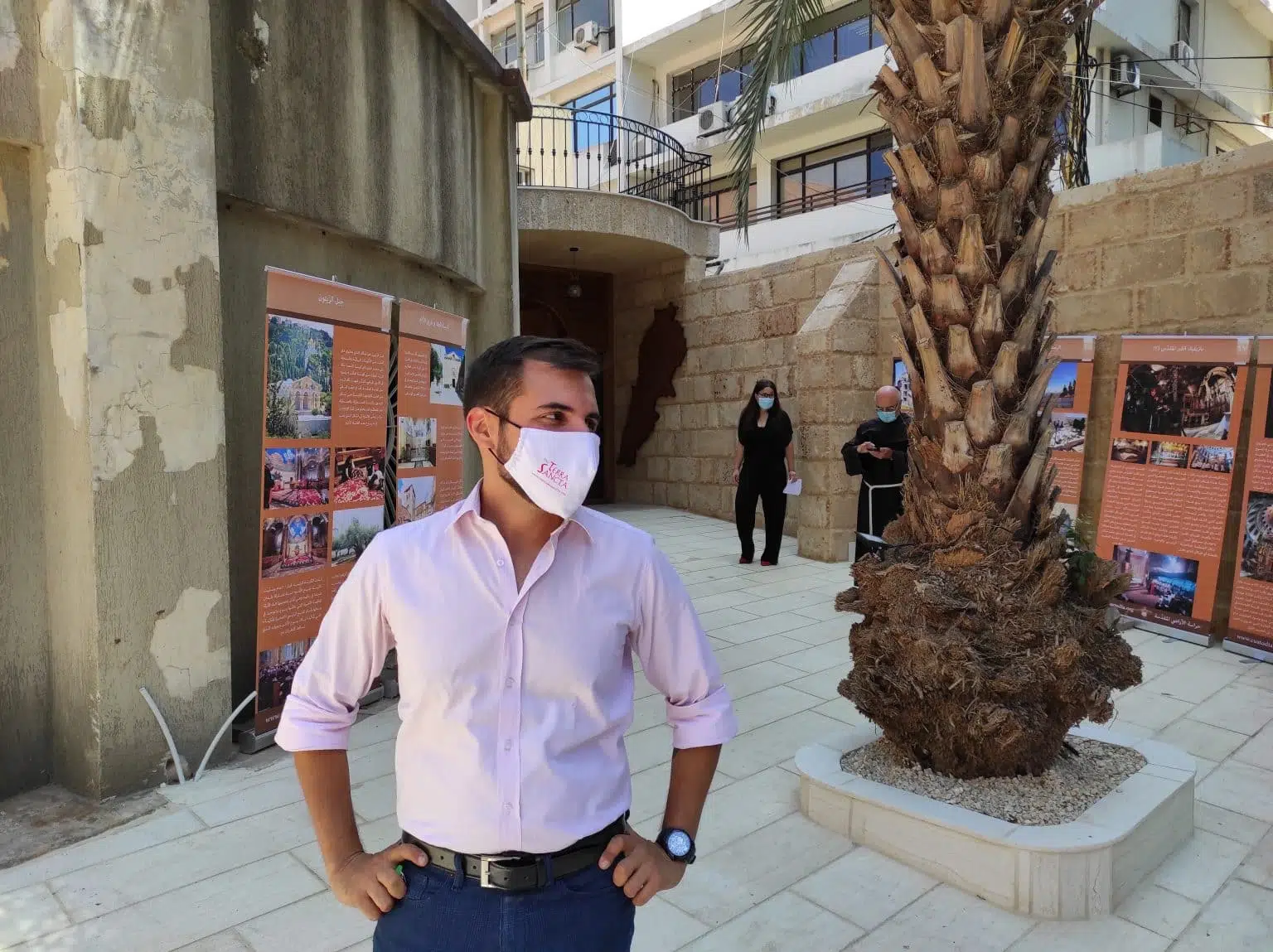“There is no petrol, no gas, no medicine,” says Fadi Bejan, a collaborator of the Associazione Pro Terra Sancta in Beirut, disconsolately. On the phone, he tells us about the crisis that has engulfed his native Lebanon, and lucidly traces its causes and consequences.
Fadi, thirty-seven years old, a former employee in the financial world, has been active for five years in the Third Sector, and has worked with Associazione Pro Terra Sancta since 4 August 2020, the date of the terrible explosion in the port of Beirut. The images of the event are in his eyes, he says, as he describes the catastrophe Lebanon is going through, “but things started going wrong long before 4 August 2020”.
“Exactly two years ago, on 17 October 2019, people took to the streets to protest against a corrupt system,” and since then the country has begun to see more and more of the decline that now engulfs it. The protests were a reflection of the increasingly evident collapse of the economic and social system, and the collapse is now a reality in the country.
In the last two years, the Lebanese Pound has lost more than 90% of its value, plunging the inhabitants of what was known as the “Switzerland of the Middle East” into poverty. Fadi translates the crisis in his country and his city into numbers: 400,000 people (10% of the total population) have fled Lebanon in the last two years; for those who remain, the unemployment rate stands at 65%; 77% of the landowners do not have regular access to food. In Beirut, the country’s mismanagement (perhaps colluding with foreign interests) led to the devastating port explosion last year. The controversial conflagration led to the clashes that bloodied the capital last Thursday, 14 October, between Hezbollah militias and Lebanese Forces.
“In the city of Beirut,” Fadi continues, “more than 15% of children have stopped going to school because their families can no longer afford the cost of education”. That is why we pay the children’s fees to keep them in school in Beirut. We are currently assisting 82 families, and we are ready to assist 75 more. Fadi says: “Of course, the aim is to reach many families, many people, to keep them here”.
But, he continues, “there is no hope on the streets. There are families in the north of the country who have not seen a doctor in the last five years. In the Tripoli district, the most important in the area, there are no medicines – as in the whole of Lebanon – and the few that do exist cost too much.
In response to the devastating rise in the price of sanitary goods, Fadi has worked to open a medical dispensary in Tripoli, along with his six colleagues in Lebanon. “It will be ready in ten days, then we will send you some pictures. The impact will certainly be good, especially from a psychological point of view. The dramatic situation in Lebanon has been affecting people’s mental health and psychological balance for years. “In Beirut, in the Gemmayzeh district, we will open a PSS (Psycho-Social Support) centre in a couple of weeks. All kinds of needs need to be addressed, “so there will be a psychologist, counsellors and education experts in the centre. All age groups will be catered for, from the youngest, who will be offered art therapy and theatre courses, to the oldest, who will have cooking classes as well as psychological help”.
“The most affected group“, says Fadi, in the Lebanese capital, “are those between 30 and 40 years old: they are people who have lost everything due to the economic crisis, and they are very tired psychologically“. The new PSS centre in Gemmayzeh is tailor-made for them: an initial phase of material support, with the distribution of medicines, clothing and food, also with a view to supporting their families, is followed by a psychological and social reintegration process that can give them lasting strength.
The balance sheet is bitter: “We don’t live a decent life here. Before, the government subsidised electricity; now that everything is in crisis, it has stopped doing so, and we have light for two hours a day. It doesn’t even make sense to put food in the fridge: what difference does it make if the power goes out after two hours?”. Fadi doesn’t spare the Lebanese population either: “Of course, the government is to be blamed, but we are the ones who have allowed such a broken system to continue for years. We cannot put all the blame on politics”.
But then is there no hope for Lebanon? “No, we try to keep a spark alive in Pro Terra Sancta’s projects”: in Gemmayzeh, the Beirut neighbourhood where the PSS centre will open, there is already an emergency centre that is important for people’s lives and health. “There are people who seek us out because they have built relationships in the centre. There are people who keep trying to build relationships. These are our seeds that we plant in this devastated country.”






